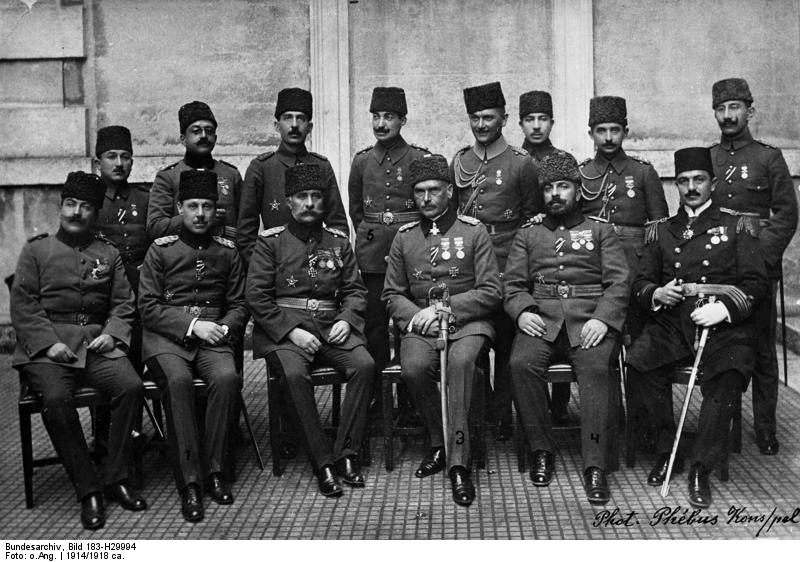(Tbilisi, 24 May 1918, “Ertoba” N 104 and N 102) Akaki Chkhenkeli, [Chairman of the Trans-Caucasus Government and Foreign Minister] reports from Batumi, that the Ottomans have demanded the right of military passage through Trans-Caucasus railway until the end of war [World War I] and the conclusion of general truce.
Already on 19 May, German representative at the peace conference [General Otto] Von Lossow sent a letter to Chkhenkeli, which stated, that peace talks between Trans-Caucasian Republic and the Ottoman Empire are deadlocked. Von Lossow offered his mediation, which the Georgian delegation has accepted.
In the meantime, the Ottoman army continued to advance from Alexandropol [present-day Gyumri] direction towards Tbilisi. According to the military officials of Trans-Caucasus Republic, on 21 May the opponents have captured Amamli and continue to advance. Our detachments are retreating towards Kishlak and Kraklis [see map].
On 20 May, the Ottoman troops, supported by Kurds and Tatars [Azerbaijanis] have attacked Igdir. The enemy gave one our to surrender all arms and ammunition, and offers to suspend hostilities afterwards. Our detachment has decided to retreat to the riv. Araks [present-day border of Georgia and Armenia].
[Thus the Ottoman army is developing its offensive on two directions: threatening both Tbilisi and Yerevan. Ethnic Azerbaijani residents in these areas are reported to mostly support the Ottomans, even though Azerbaijan is still party to the Trans-Caucasus Federation. Georgia’s situation is aggravated by the fact that Batumi was taken by the Ottomans on 14 April, after two-day combat. Also in April, the Ottoman troops laid siege to the city of Kars. With the French mediation, the local Armenian garrison has surrendered on 25 April.The military situation has further deteriorated on 15 May, following the fall of the strategic point, Gyumri (Alexandropol), to the Ottomans. 22 May issue of “Ertoba” reported this event:]
On 15 May at 6 am, the head of our delegation to Batumi truce talks A. Chkhenkeli has received a diplomatic note from the head of the Ottoman Delegation Khalil Bei. Based on the letter of the Ottoman military commander, the latter informed the Trans-Caucasus delegation, that the Ottoman high command is commencing transfer of its army on Gymbr [Gyumri]-Julfa railway towards Persia, to face the British. Our delegation has lodged the most energetic protest to Khalil Bei as well as [the German representative] Von Losssow for violation of the sovereign rights of the Trans-Caucasus Republic, which was recognized by the Ottoman Empire.
Upon the delivery of the diplomatic note, the Ottomans started to advance on Gyumri from 7:15 am after having set a three-hour ultimatum for the removal of the Trans-Caucasus Republic troops from the railway by 25 versta [1 versta=1.06 km] and to surrender the city of Gyumri as well as the railway until the end of the war. The same day, the Ottomans took Gyumri.
This post is also available in: ქართული (Georgian)

